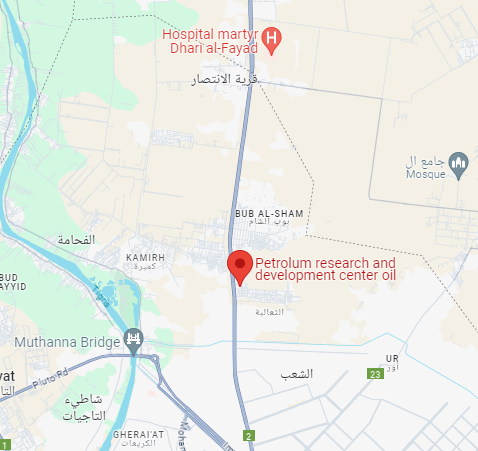Performance Of some Corrosion Inhibitors For Carbon Steel In Hydrochloric Acid
DOI:
https://doi.org/10.52716/jprs.v3i1.63Keywords:
corrosion inhibitors, carbon steel, hydrochloric acid, agitation velocity, inhibition efficiency.Abstract
Corrosion tests on commercial carbon steel pipe in aerated 0.1N HCl solution under static and flow conditions with ranges of rotation velocity of 400–1400 rpm and temperature of 35 – 60ºC, were carried out by weight loss method, in absence and presence of several inhibitors which were thiourea, ethylenediamine, diethano-lamine and formaldehyde as an adsorption type inhibitors in concentration range 400 – 2000 ppm using rotating cylinder arrangement. The experimental results showed that the corrosion rate in absence and presence of inhibitors is increased with the increasing temperature of the corrosive solution and the rotational velocity and is decreased with increasing the inhibitors concentration for the whole range of
temperatures and rotational velocities. Highest inhibition efficiency was attained by thiourea with considerable efficiencies for other inhibitors. The order of corrosion inhibitors efficiencies was as follows: thiourea > ethylenediamine > diethanolamine > formaldehyde. Under static conditions maximum inhibition efficiency obtained was 77.59% for thiourea and the minimum inhibition efficiency was 37.12% for formaldehyde depending on inhibitor concentration and temperature. Also the results revealed that the inhibitors efficiency increases with increasing its concentration and decreases with increasing agitation speed and temperature. The thiouurea was found to be good inhibitor even at high agitation velocity while the formaldehyde failed to inhibit corrosion at high velocity.
Downloads
Published
How to Cite
Issue
Section
License
Copyright (c) 2020 Qasim J. M. Slaiman, Basim O. Hasan, Hayder M. Turki

This work is licensed under a Creative Commons Attribution 4.0 International License.














